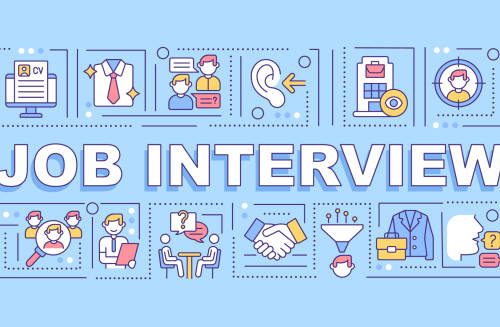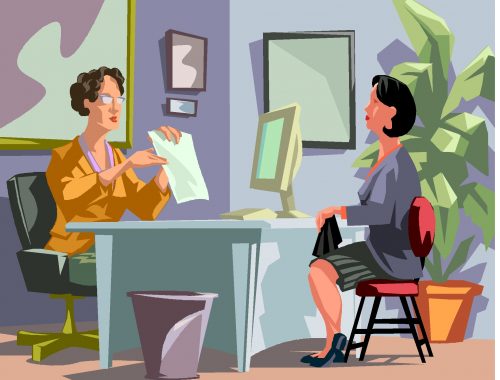PREPARE AND PRACTICE!
MY INTERVIEW SIMULATION EXPERIENCE


Job interviews are some of the most daunting situations a young adult can face, the anxiety and panic can sometimes get the better of us and we miss out on what might have been a really great opportunity. Thankfully, we have been given the opportunity to rehearse our interview skills and practice our ability to put preparation into practice. In order to process my experience, I have used the Gibbs’ Reflective Cycle. [1]

What happened?
What happens in a simulated interview? Well, it’s essentially like a real interview, except no matter how well it goes, you don’t get the job! We were each divided into groups and given a specific job to pretend to apply for, myself and two of my peers were applying for a job as a Community Arts officer for a company in Lisburn. We each took turns waiting outside the room until we were called in, and from the moment I stepped through the door, the ‘interview’ had begun. I was asked a series of questions that I would have expected from a real interview, such as “Tell us about yourself”, “What experience do you have that’s relevant to the job?”, and so forth. Once the interview had concluded and my hands had stopped sweating, I was able to receive my feedback.
[1] University of Edinburgh, 2020. Gibbs Reflective Cycle. HTTPS://www.ed.ac.uk/reflectors-toolkit/reflecting-on-experience/gibbs-reflective-cycle. Edinburgh, Scotland.

Feelings?
When I first walked into the room, there was silence, as my peers and I are studying Drama, getting into character for the interview was pretty easy. As I was first to be interviewed, I was feeling anxious, as I was given the same amount of time to recall on my preparation and answers as one would in a real interview. Once the interviewers had finished their first question, I panicked slightly as I was already thinking about what the next question could possibly be, therefore there was a silence and I stumbled before I answered. As the interview progressed and the nerves left, I relaxed, my preparation supported me and I was able to answer the questions confidently and with ease.
Evaluation
Once the interview concluded, I received my feedback. The pretend interviewers described me as confident, relaxed and prepare. One of my peers said that my answers flowed easily, therefore I feel the interview was successful in terms of my body language and confidence. The only negative feedback I received was that my answers could have been lengthened, we were told the interview was expected to last between ten to fifteen minutes, whereas I had completed in just under ten. When asked how my experience related to the job, I remembered the STAR technique.

When preparing for the interview, I had looked over this technique and used it to think of my relevant experience and how I might use it in relation to the job description. Overall, I feel this exercise and the use of the STAR technique was effective I was able to succeed in the interview, it also allowed me to practice for any upcoming interviews I may have.
After completing the interview and receiving my feedback, I feel I could have improved on the example I had used for the Star technique and taken more time to think about my answers.
Analysis
When I was first told that the interview should last between ten to fifteen minutes, I panicked, thinking it would be quite long and wondering was I going to be able to talk for that long. My fears were confirmed as I looked at the clock and realised it had been nine minutes, but my anxiety was relaxed when my peers assured me that the interview had gone well. During the spare time, I struggled to remember all I had said in my answers and was able to discuss this with my peers and think about how I could have developed on my answers and possibly made them stronger. Something I feel worked well within the interview was my use of body language, as a Drama student who always struggled with stage fright, I frequently had to pretend to look relaxed when I was actually nervous or panicking inside. As I sat down for the interview, I made sure to tuck one leg in under the other to avoid shaking my leg if I crossed it and rested my hands in my lap. I sat back comfortably in the chair and tried to maintain eye contact, smiling frequently and trying not to fidget or move too much in my chair.

Conclusion
Although the time I had spent answering the questions was clearly less than advised, I was extremely pleased to see that my feedback had more positive points than negative. My peers said that although short, my answers were clear and concise and that it was clear I had taken time to prepare and the examples I used within the STAR technique were relevant to support my examples.
You May Also Like

BE A S.T.A.R 🌟
14 February 2023
Interview a New You! – Becoming an Interview Guru
24 February 2023

